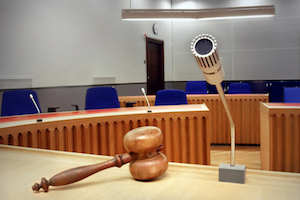Brenda Pringle had an operation to remove pelvic cysts. Her recovery did not go well. Additional surgeries were required before she could return to work.
Pringle made a complaint against her surgeon, Dr. Christy South, to the Kentucky Board of Medical Licensure. The Board contracted with Dr. Elvis Donaldson to review the complaint. He apparently made a determination that Dr. South did not follow an appropriate standard of care.
Pringle then sued Dr. South for medical malpractice. Pringle disclosed her expert witnesses. All but one were treating physicians. None of the treating physicians offered an opinion that Dr. South breached the applicable standard of care.
Pringle identified Dr. Donaldson as an expert witness but did not retain him to testify. Dr. South subpoenaed Dr. Donaldson to testify in a discovery deposition. The Board moved to quash the subpoena, arguing that its contracted doctors should not be required to repeat the opinions they give to the Board in unrelated court proceedings.
The trial court granted the motion to quash long after the deadline for disclosing experts had passed. Dr. South then moved for summary judgment, arguing that in the absence of expert testimony, Pringle could not prove that Dr. South breached the standard of care.
The trial court agreed and granted judgment in Dr. South’s favor. Pringle appealed.
Appellate Analysis
The Kentucky Court of Appeals affirmed the trial court’s decision. Kentucky follows the general rule that the standard of care in all but the most obvious cases of medical malpractice must be proved by the testimony of an expert. Summary judgment was therefore appropriate unless the trial court erred by refusing to allow Dr. Donaldson’s compelled testimony.
Pringle argued that she was entitled to present Dr. Donaldson’s investigation, findings, and conclusions as memorialized in a report that Dr. Donaldson prepared for the Board. While acknowledging that no Tennessee precedent existed, the Court of Appeals relied on an unpublished decision for the proposition that relevant fact testimony can be compelled by issuing a subpoena, but relevant expert testimony “is not the property of litigants.”
In some contexts, that rule has obvious merit. Expert witnesses should be entitled to pick and choose the persons for whom they work. The leading expert in a field might be deluged with subpoenas to compel testimony if he or she could be forced to give expert opinions.
In addition, unlike fact witnesses, expert witnesses are entitled to be paid for their time. Retained experts can bill for their time and have a contractual right to be paid. An expert who is forced to provide an opinion without being retained might end up testifying for free.
This issue is most likely to arise when the plaintiff visits a physician who opines that the treating physician committed malpractice but is unwilling to say so in court. That happens regularly, given the reluctance of physicians to testify against each other. Forcing that physician to testify as an involuntary expert is not something that most courts are prepared to do.
Accordingly, the appellate court created a blanket rule that a party to a medical malpractice action cannot compel involuntary expert evidence from a physician. Parties must instead retain their own expert witnesses.
Lessons Learned
One might think that a report prepared by a medical expert retained by a state agency for a public purpose would be admissible evidence if it either identified malpractice or exonerated the investigated doctor. Unlike retained experts, who are often disparaged as “hired guns,” Dr. Donaldson was a neutral expert. He formed his opinions at the request of the public, not for an interested party. His opinions might therefore be seen as public property, unlike the opinions of privately retained experts that are, in the view of the court, the property of the party who retains them.
Once an expert’s report prepared for a state agency becomes a public record, there are good reasons to believe a party should be entitled to compel the expert’s testimony. The physician has already chosen to express an expert opinion and has, in fact, done so. The expert has been paid for that work. While the expert would certainly be entitled to additional compensation for testifying in a deposition or in court, the policy considerations that weigh against forcing an involuntary expert to testify have less merit when applied to experts who were retained to provide opinions to a public agency. Depriving litigants of valuable evidence that is already a matter of public record does not seem to promote justice.
Notwithstanding the unique circumstances presented here, lawyers should be guided by the court’s blanket rule. It is unwise to rely on the expectation that an expert witness can be compelled to testify. The better practice is to retain an expert.
Whether the retained expert would be entitled to rely on the report written by the Board’s expert to inform the retained expert’s opinion is a separate question. The answer in most states will likely depend on whether physicians routinely rely on the opinions of other physicians when they form their own expert opinions.




